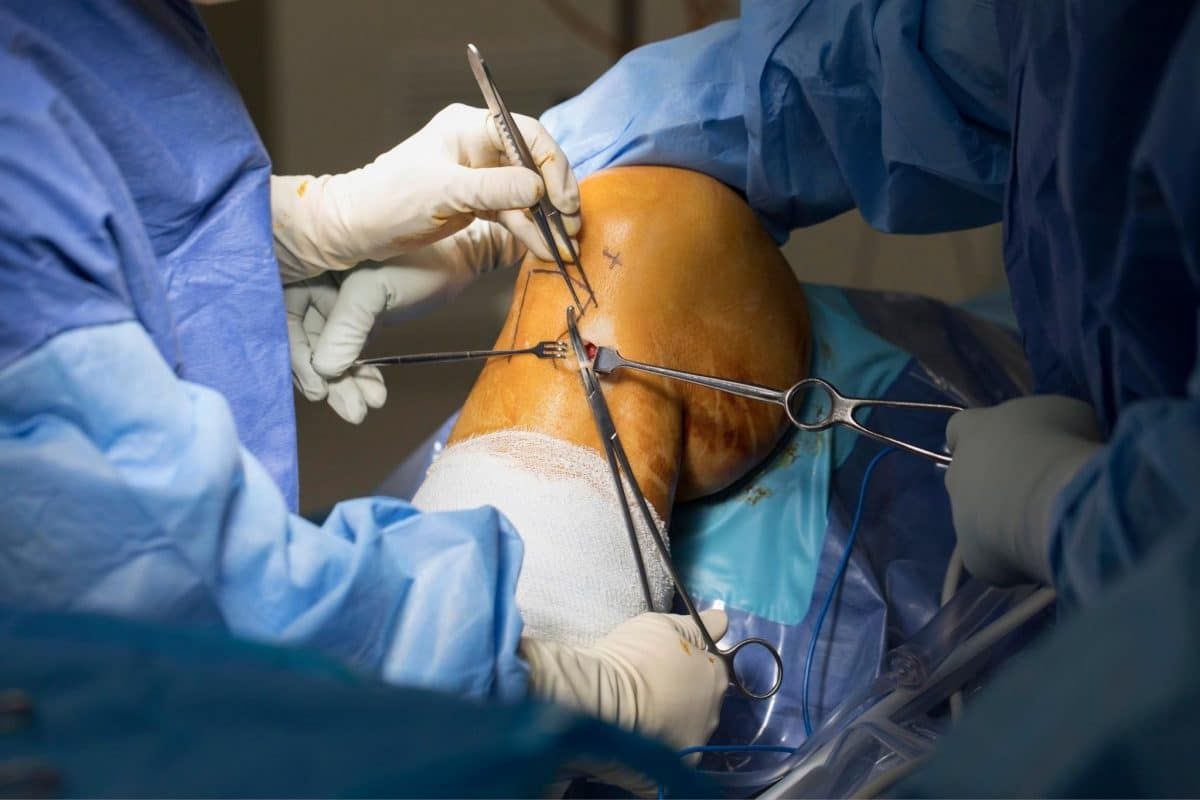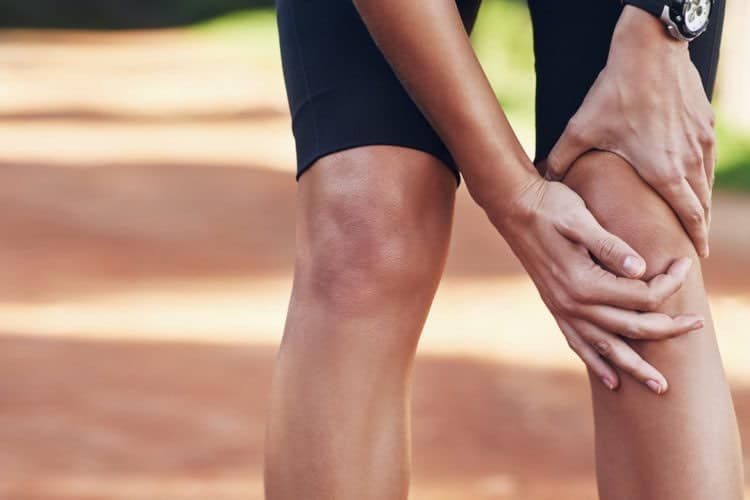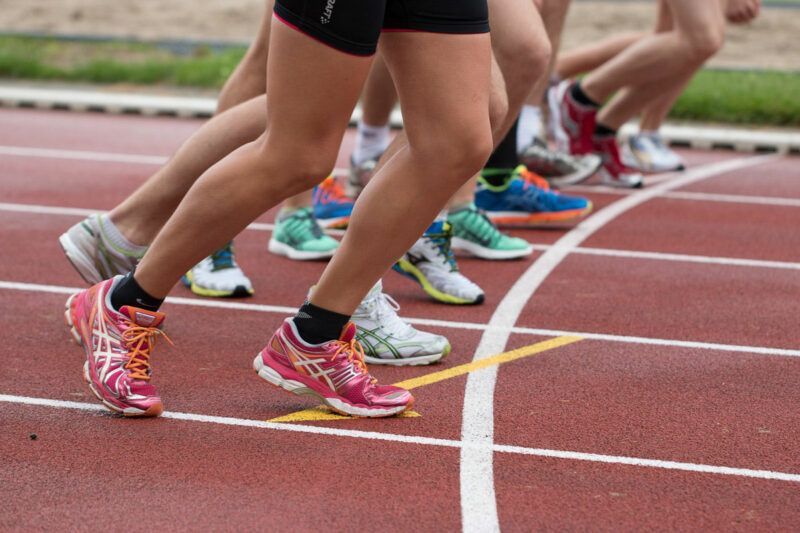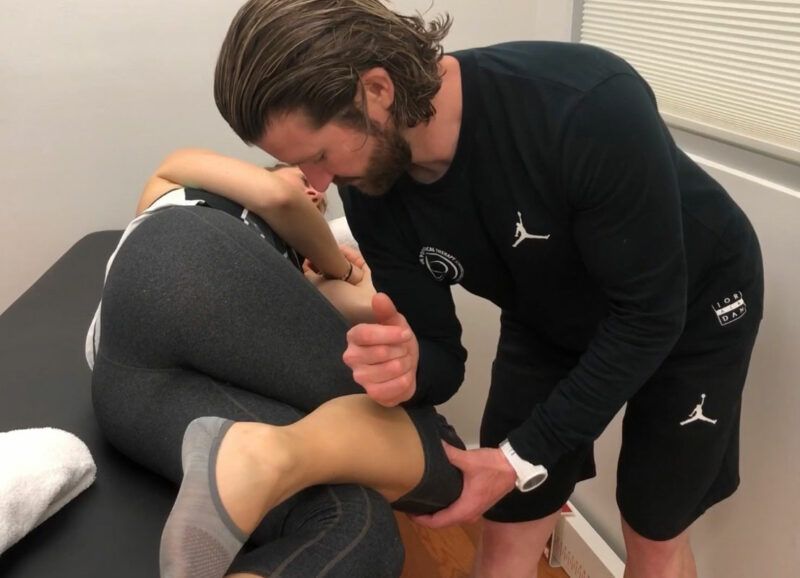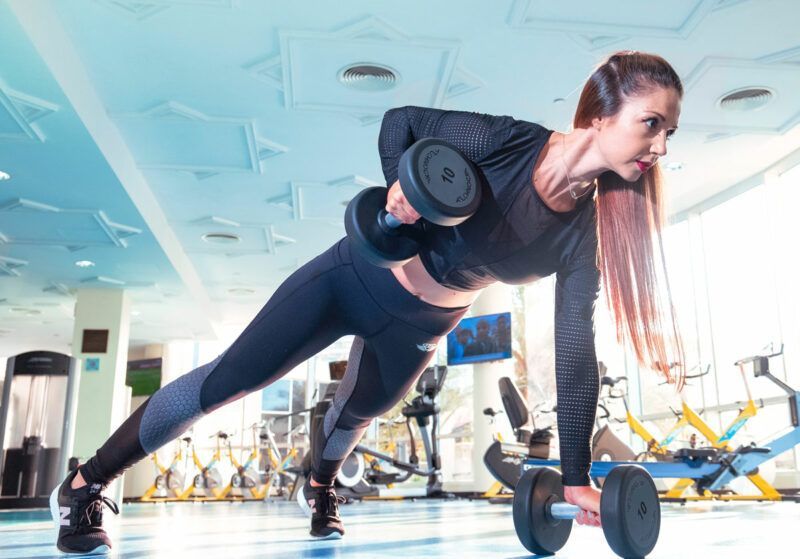November 29, 2024
It’s time we all face three facts: the first, if you are an athlete you should consider twice whether to use your insurance healthcare benefits to receive physical therapy at your neighborhood’s so-called “sports physical therapy” clinic. Second, we must face the reality that not all sports clinics can provide efficient and effective specialized care to athletes, whether amateur or professional. And third, we must accept that effective, efficient specialized care deserves to be recognized, paid for, and used on a regular basis in the sports performance world. Each player within our complex healthcare system in the United States, which includes insurance companies and big businesses among others, makes up the powerful and politically active special interest groups represented before lawmakers by high-priced lobbyists (14). Each player has a different economic interest, including physicians and physical therapists seeking to increase their reimbursement for services provided while insurance companies continue their effort to decrease their payment for providers, which inevitably leads to a major cost containment problem (6). This together with a system that is focused on acute care, uncoordinated, high cost, technology driven and offers unequal access and mixed outcomes (3,6,14). It is also not governed by one central agency and as a result is a very complex system to understand and change. While some athletes are covered for physical therapy services used directly through their team or organization, to a larger degree athletes pay a specific premium (financing) through their employer or self-pay based insurance plan to cover their healthcare services each year (6). These services include physical therapy services that are in most cases capped for a certain amount of time, sessions and treatment provided, chosen by the payer (insurance), in addition to additional continued increased costs via copayment per visit and/or yearly deductible (6). Some athletes will find themselves being treated in an outpatient physical therapy clinic (24). Currently there are about 18,000 outpatient physical therapy clinics (and increasing) in the United States, most of them are in-network (get reimbursed directly through the health insurance company), which are increasingly operated and owned by the big players in the market as they try to consolidate with other physical therapy businesses to increase overall financial revenue (17). This is no surprise as physical therapy has become more accessible and is used now more than ever before, to some extent due to the enactment of the Affordable Care Act and greater public awareness (3, 6, 7). This has resulted in physical therapy services being reimbursed with lower pay to meet the high demand, which on the flip side results in a more work for less money scenario for business owners. This in turn leads to increased patient caseload per therapist in the outpatient clinic setting and high turnover rates (5, 16, 18, 20). Nowadays, the standard in-network clinics hire physical therapy assistants, physical therapy aids and trainers to meet the high demand for services so as to share patient care and withstand the higher caseload per day. These same outpatient clinics largely operate on a uniform basis, in that all physical therapists treat any patient that comes in through their door, from an elder after a traumatic brain injury to a wheelchair bound adult after a spinal cord injury sustained in a motor vehicle accident, to an elite athlete recovering from an ACL reconstructive procedure. The newly graduated doctors of physical therapy who are hired to work in these clinics are undoubtedly highly educated and motivated professionals that underwent extensive studies to treat a wide variety of conditions including musculoskeletal, cardiopulmonary, neuromuscular, integumentary and developmental, and as well as the aforementioned conditions I mentioned, but with two big caveats: lacking advanced practical knowledge and advanced theoretical knowledge (9, 25). And it is here that one may raise the question on whether the current physical therapy educational program was solely designed for the therapist to seamlessly integrate with the healthcare system and meet the demands of the big players in this system. The ongoing increase in sought for treatment by people who suffer from sports, musculoskeletal and orthopedic conditions as they relate to movement dysfunction, pain and disabilities brought clinics to an understanding that specifically naming and marketing their practices as “sports physical therapy” will lead them to an increased patient caseload. From a business perspective this is clearly a good marketing strategy, but from the physical therapist’s perspective this could be viewed as an ethical and professional issue that may lead to healthcare fraud and abuse. According to the Code of Ethics for the Physical Therapist (1) therapists “shall demonstrate independent and objective professional judgment in the patient’s or client’s best interest”, while the Standards of Practice for Physical Therapy (2) call for therapists to “ensure that the level of expertise within the service is appropriate to the needs of the patients and clients served”. Both of these statements are undermined in reality as professional judgment and level of expertise is clearly lacking in these clinics. Caring for the athlete through on-going physical therapy, regardless of injury status, will help in mitigating injury risk both in the short and long-term, promote physical and mental wellbeing, as well as maintain and/or increase performance during both the in-season and off-season (11, 19, 22). Moreover, caring for the professional athlete becomes highlighted in the case of injury as the financial tolls, as well as mental to some degree, are high to all people surrounding the athlete, including the athlete’s family, medical and support staff, and other stakeholders including investors (15, 21, 23). This individualized specialized care is time consuming and requires a therapist to be sufficiently educated and experienced, collaborate with the athlete and other healthcare providers, as well as to be highly motivated and willing to invest to maintain continued professional development and standards (8, 10, 12). An in-network clinic will simply not be able to provide this level of care to an athlete because of time restrictions, insurance limitations, equipment and space restrictions, lack of incentives to provide high quality care and high caseloads of patients per therapist. While some benefit from this standard care, simply put, the specific subgroup of athletes who are treated in an in-network outpatient clinic are likely to withstand increased costs and poor outcomes due to ineffective and wasteful care that can also impact athletes safety (4, 13). The good news for athletes is that more and more specialized privately owned sports performance practices have been opening their doors to offer high quality care. These practices are unique, customizing their comprehensive quality services to fit athletes’ needs individually, and are run by highly specialized therapists (and not big corporations) who, needless to say, do not base their treatment and care decisions solely on insurance companies’ decisions on plan of care, and reimbursement revenue. Some of the most brilliant minds in the sports performance world in physical therapy work in these practices. Their dedication to the profession is uncanny, spending most of their time, money and effort to make this possible. The athletes among us should start making these same informed decisions relating to their minds and bodies rather than the insurance companies and big “sports physical therapy” mills, and embrace these advantageous high quality services while investing their money doing so, understanding they are closer now than ever before to reaching their performance goals. References American Physical Therapy Association. (2020, August 12). Code of ethics for the physical therapist. https://www.apta.org/siteassets/pdfs/policies/codeofethicshods06-20-28-25.pdf American Physical Therapy Association. (2020, August 12). Standards of practice for physical therapy. https://www.apta.org/apta-and-you/leadership-and governance/policies/standards-of-practice-pt American Physical Therapy Association (2021, February 26). Levels of patient access to physical therapist services in the u.s. https://www.choosept.com/globalassets/choosept/assets/pdf-downloadables/direct-access by-state-map.pdf Babatunde, F., MacDermid, J., & MacIntyre, N. (2017). Characteristics of therapeutic alliance in musculoskeletal physiotherapy and occupational therapy practice: a scoping review of the literature. BMC health services research, 17(1), 375. https://doi.org/10.1186/s12913-017- 2311-3 Balogun, J. A., Titiloye, V., Balogun, A., Oyeyemi, A., & Katz, J. (2002). Prevalence and determinants of burnout among physical and occupational therapists. Journal of allied health, 31(3), 131–139. Bodenheimer T., & Grumbach K. (2020). Understanding Health Policy: A Clinical Approach, 8e. [eBook edition]. McGraw Hill. https://accessphysiotherapy-mhmedical-com.akin.css.edu/content.aspx?bookid=2853§ionid=241739104 Center for Health Workforce Studies: University of Washington. (2020, November 23). The physical therapist workforce in the u.s. https://familymedicine.uw.edu/chws/wp-content/uploads/sites/5/2020/11/PT_PB_Nov_23_2020.pdf Charmant, W. M., van der Wees, P. J., Staal, J. B., van Cingel, R., Sieben, J. M., & de Bie, R. A. (2021). A framework exploring the therapeutic alliance between elite athletes and physiotherapists: a qualitative study. BMC sports science, medicine & rehabilitation, 13(1), 122. https://doi.org/10.1186/s13102-021-00348-3 Childs, J. D., Whitman, J. M., Sizer, P. S., Pugia, M. L., Flynn, T. W., & Delitto, A. (2005). A description of physical therapists’ knowledge in managing musculoskeletal conditions. BMC musculoskeletal disorders, 6, 32. https://doi.org/10.1186/1471-2474-6-32 Delaney, H., McKenna, J., & Phillips, S. (2002). Physiotherapists’ lived experience of rehabilitating elite athletes. Physical Therapy in Sport, 3(2), 66-78. https://doi.org/10.1054/ptsp.2001.0092 Ferreira, P. H., Ferreira, M. L., Maher, C. G., Refshauge, K. M., Latimer, J., & Adams, R. D. (2013). The therapeutic alliance between clinicians and patients predicts outcome in chronic low back pain. Physical therapy, 93(4), 470–478. https://doi.org/10.2522/ptj.20120137 Hall, A. M., Ferreira, P. H., Maher, C. G., Latimer, J., & Ferreira, M. L. (2010). The influence of the therapist-patient relationship on treatment outcome in physical rehabilitation: a systematic review. Physical therapy, 90(8), 1099–1110. https://doi.org/10.2522/ptj.20090245 Hush, J. M., Cameron, K., & Mackey, M. (2011). Patient satisfaction with musculoskeletal physical therapy care: a systematic review. Physical therapy, 91(1), 25–36. https://doi.org/10.2522/ptj.20100061 Johnson, J., Stoskopf, C. and Shi,L. (2018). Comparative Health Systems: A Global Perspective, 2e. [eBook edition]. Jones and Bartlett Learning. https://eds-s-ebscohost-com.akin.css.edu/eds/ebookviewer/ebook/bmxlYmtfXzEyMjkzOTZfX0FO0?sid=32245208-cdc2-4605-a1bb-2da8274645ba@redis&vid=1&format=EB&rid=1 Leeds M., & Allmen V. (2005). The Economics of Sports. 2e. Pearson Addison Wesley. Linzer M. (2018). Clinician Burnout and the Quality of Care. JAMA internal medicine, 178(10), 1331–1332. https://doi.org/10.1001/jamainternmed.2018.3708 Lo, D., Pine, D., & Janiga, N. (2020, April 10). 2020 outlook: Physical therapy clinics and centers. https://healthcareappraisers.com/2020-outlook-physical-therapy-clinics-centers/ Manske, R. C., & Lehecka, B. J. (2012). Evidence – based medicine/practice in sports physical therapy. International journal of sports physical therapy, 7(5), 461–473. Mendonça, L. D., Schuermans, J., Wezenbeek, E., & Witvrouw, E. (2021). Worldwide Sports Injury Prevention. International journal of sports physical therapy, 16(1), 285–287. https://doi.org/10.26603/001c.18700 Rogan, S., Verhavert, Y., Zinzen, E., Rey, F., Scherer, A., & Luijckx, E. (2019). Risk factor and symptoms of burnout in physiotherapists in the canton of Bern. Archives of physiotherapy, 9, 19. https://doi.org/10.1186/s40945-019-0072-5 Rosen, P., Heijne, A., Frohm, A., Fridén, C., & Kottorp, A. (2018). High Injury Burden in Elite Adolescent Athletes: A 52-Week Prospective Study. Journal of athletic training, 53(3), 262–270. https://doi.org/10.4085/1062-6050-251-16 Saragiotto, B. T., Di Pierro, C., & Lopes, A. D. (2014). Risk factors and injury prevention in elite athletes: a descriptive study of the opinions of physical therapists, doctors and trainers. Brazilian journal of physical therapy, 18(2), 137–143. https://doi.org/10.1590/s1413-35552012005000147 Shuer, M. L., & Dietrich, M. S. (1997). Psychological effects of chronic injury in elite athletes. The Western journal of medicine, 166(2), 104–109. Strack, D. S., MacDonald, C. W., Valencia, E. B., & Davison, M. (2019). Case for the specialized sports physical therapist to be an essential part of professional athlete care: letter from America no. 1. British journal of sports medicine, 53(10), 587–588. https://doi.org/10.1136/bjsports-2017-097575 Swisher L. L. (2010). Moral reasoning among physical therapists: results of the Defining Issues Test. Physiotherapy research international : the journal for researchers and clinicians in physical therapy, 15(2), 69–79. https://doi.org/10.1002/pri.482
